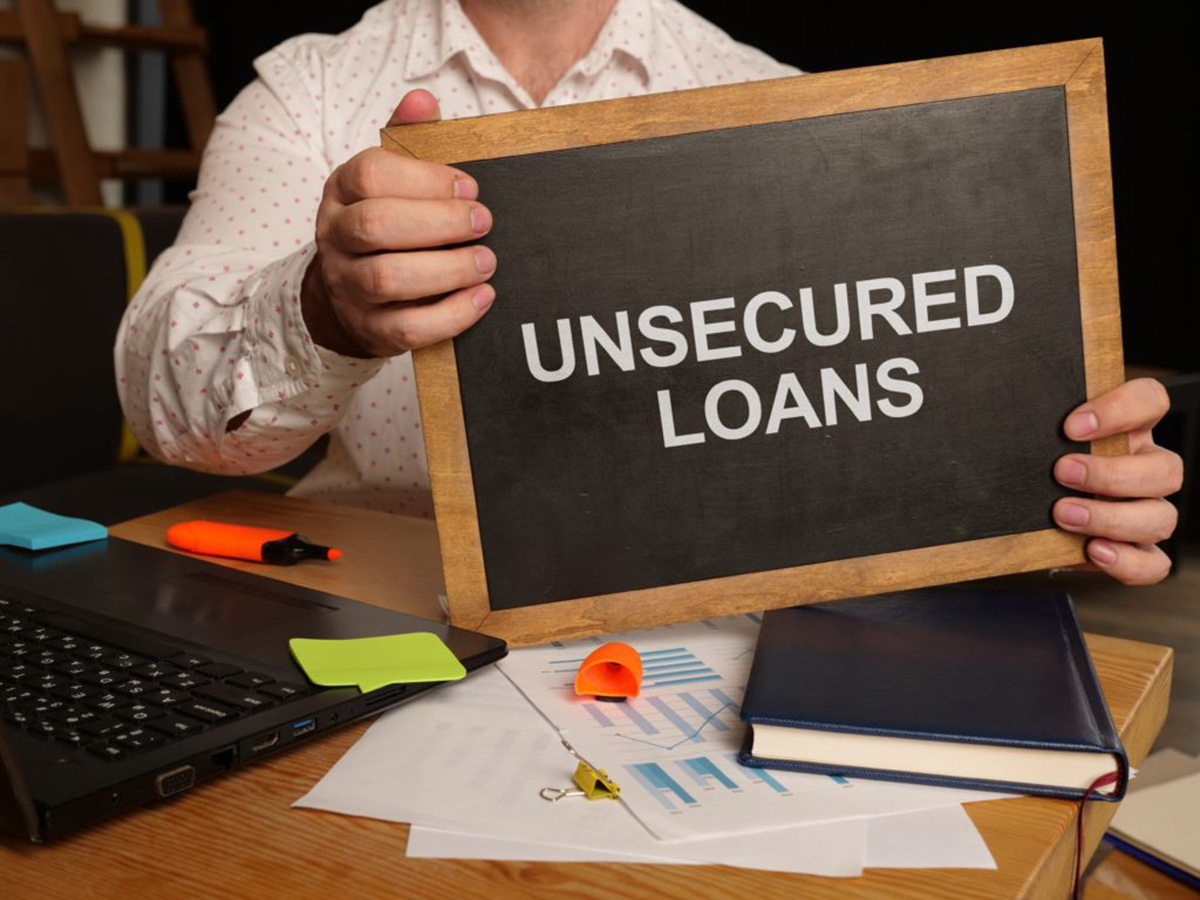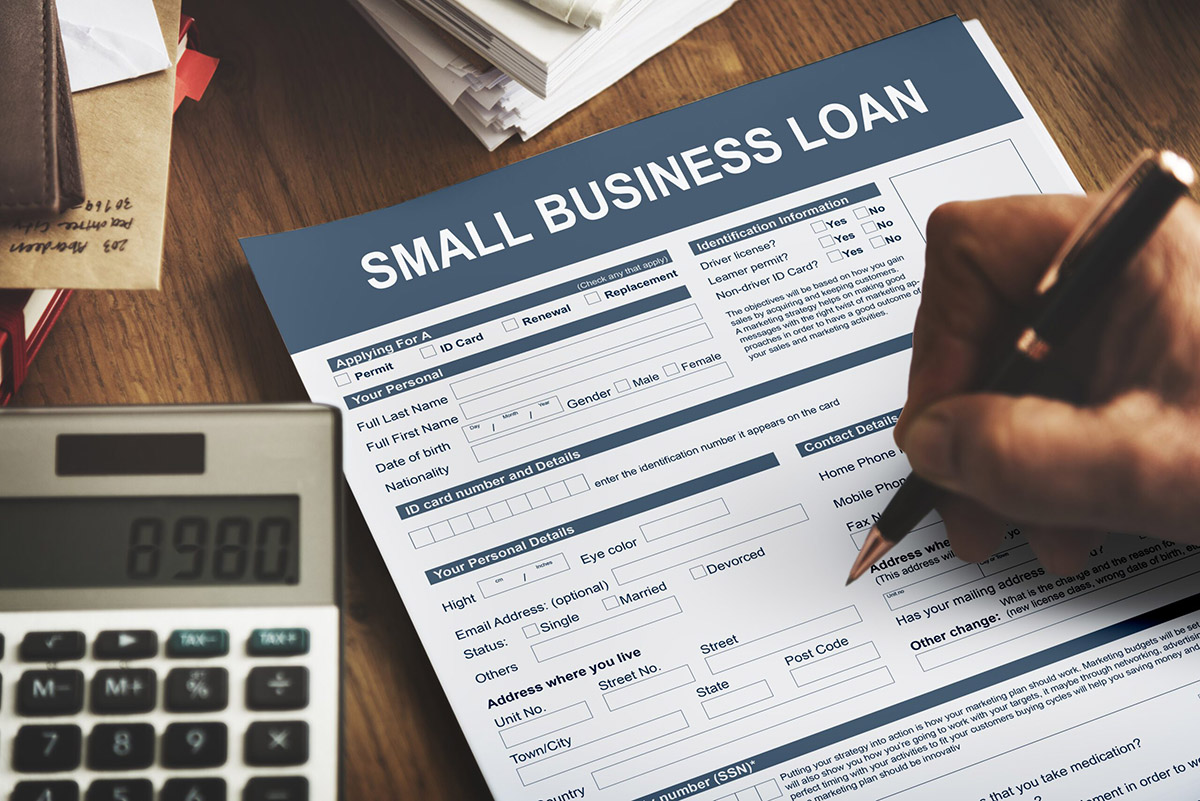

Finance
What Is Unsecured Business Loan
Modified: December 30, 2023
Looking for financing options to fund your business? Discover the benefits and eligibility criteria of unsecured business loans in our comprehensive guide on finance.
(Many of the links in this article redirect to a specific reviewed product. Your purchase of these products through affiliate links helps to generate commission for LiveWell, at no extra cost. Learn more)
Table of Contents
Introduction
In today’s competitive business landscape, access to financing is crucial for the growth and success of small and medium-sized enterprises (SMEs). One of the financing options available to businesses is an unsecured business loan. Unlike secured loans that require collateral, unsecured business loans do not require any assets to be pledged as security. This makes them an attractive option for businesses that may not have valuable assets to offer as collateral or are hesitant to put their assets at risk.
An unsecured business loan provides the flexibility and financial assistance that businesses need to fund various activities, such as expansion, working capital, inventory purchases, equipment upgrades, marketing campaigns, and more. It offers a lifeline to entrepreneurs and business owners who are looking for quick and hassle-free access to funds without the burden of collateral.
In this article, we will delve into the concept of unsecured business loans, exploring their definition, advantages, disadvantages, eligibility criteria, application process, interest rates, repayment terms, and alternative financing options. By understanding the intricacies of unsecured business loans, you will be better equipped to make informed financial decisions for your business.
So, let’s dive in and explore the world of unsecured business loans, gaining insights into their benefits and challenges, and determining whether they are the right financing solution for your business needs.
Definition of Unsecured Business Loan
An unsecured business loan is a type of loan that does not require any collateral to secure the funds. Unlike secured loans, which are backed by assets such as real estate, vehicles, or equipment, unsecured business loans are solely based on the creditworthiness of the borrower and the financial health of the business.
This means that if a business defaults on an unsecured business loan, the lender does not have the right to seize any specific assets to recover their funds. Instead, the lender relies on the borrower’s personal guarantee and their ability to repay the loan through other means, such as business revenues, cash flow, or personal assets.
Unsecured business loans provide businesses with the flexibility to obtain capital without offering collateral or risking the loss of valuable assets. This makes them particularly suitable for startups, small businesses, or businesses that may not have substantial assets to pledge as security.
It’s important to note that since unsecured business loans carry a higher level of risk for lenders, they often come with more stringent eligibility criteria and higher interest rates compared to secured loans. Lenders take into account factors such as the borrower’s credit score, business income, financial statements, and industry performance to assess the likelihood of repayment.
Unsecured business loans can be used for a variety of purposes, including:
- Working capital to cover day-to-day expenses
- Inventory purchases to meet customer demands
- Equipment upgrades or purchase of new equipment
- Expansion or opening new locations
- Marketing and advertising campaigns
- Hiring and training new employees
Overall, unsecured business loans provide businesses with the financial flexibility and freedom to invest in growth opportunities and navigate through challenging times without the burden of collateral.
Advantages of Unsecured Business Loan
Unsecured business loans offer several advantages for businesses in need of financing. Here are some key benefits:
1. No collateral required: One of the biggest advantages of an unsecured business loan is that it does not require any collateral. This means that businesses do not have to put their assets, such as property or equipment, at risk.
2. Quick access to funds: Compared to secured loans, unsecured business loans typically have a faster approval process. Lenders focus more on the borrower’s creditworthiness and business performance rather than evaluating collateral. This allows businesses to obtain funds quickly, helping them seize time-sensitive opportunities or address urgent financial needs.
3. Flexible use of funds: Unsecured business loans provide businesses with the flexibility to use the funds for various purposes. Whether it’s covering working capital needs, investing in new equipment, expanding operations, or marketing campaigns, businesses have the freedom to allocate the funds where they are needed most.
4. Lower risk of asset loss: Since there is no collateral tied to the loan, businesses are not at risk of losing their assets in the event of loan default. This can provide peace of mind for business owners who may be hesitant to put their valuable assets on the line.
5. Builds credit history: Successfully repaying an unsecured business loan can help businesses establish and improve their credit history. This can be valuable for future borrowing, as it demonstrates the business’s ability to responsibly manage debt and increases their chances of obtaining favorable loan terms in the future.
6. Higher loan amounts: Unsecured business loans often have higher loan amounts compared to other forms of financing like business credit cards or lines of credit. This allows businesses to access larger sums of money to support their growth initiatives or finance substantial investments.
7. Less paperwork: Compared to secured loans, unsecured business loans usually require less paperwork and documentation. This streamlines the application process and reduces the time and effort required to complete the loan application.
Overall, unsecured business loans provide a flexible and accessible financing option for businesses. They offer the possibility of obtaining funds quickly without the need for collateral, allowing businesses to seize opportunities, address financial gaps, and propel their growth.
Disadvantages of Unsecured Business Loan
While unsecured business loans offer several advantages, it’s important to consider the potential disadvantages before deciding to pursue this type of financing. Here are some key drawbacks:
1. Higher interest rates: Because unsecured business loans do not require collateral, lenders assume a higher level of risk. As a result, they often charge higher interest rates compared to secured loans. This means that businesses will end up paying more in interest over the life of the loan, increasing the overall cost of borrowing.
2. Stricter eligibility criteria: Lenders may have more stringent eligibility requirements for unsecured business loans. They typically evaluate factors such as the borrower’s credit score, business revenue, financial statements, and industry performance. Businesses with lower credit scores or weaker financial positions may find it challenging to qualify for an unsecured loan or may be offered less favorable terms.
3. Shorter repayment terms: Unsecured business loans often come with shorter repayment terms compared to secured loans. This means that businesses may have to make higher monthly payments to repay the loan within a shorter timeframe. This can put a strain on cash flow and potentially limit the ability to invest in other business initiatives.
4. Lower loan amounts: Although unsecured business loans can offer higher loan amounts compared to other forms of financing, such as business credit cards or lines of credit, they may still have lower limits compared to secured loans. This could restrict businesses from accessing the necessary funds for large-scale projects or significant investments.
5. Personal guarantee: In many cases, lenders may require a personal guarantee from the business owner or key stakeholders when applying for an unsecured business loan. This means that the individual(s) assume personal liability for the loan, and in the event of default, their personal assets may be at risk.
6. Risk of damage to credit score: Defaulting or being late on payments for an unsecured business loan can have a negative impact on the borrower’s credit score. This can make it harder to secure future financing or obtain favorable terms for other financial products.
It’s crucial for businesses to carefully assess their financial situation, repayment ability, and long-term goals before opting for an unsecured business loan. Considering the potential drawbacks and costs associated with this type of financing can help businesses make informed decisions that align with their financial well-being.
Eligibility for Unsecured Business Loan
While unsecured business loans offer flexibility and accessibility, lenders have specific eligibility criteria that businesses must meet to qualify for this type of financing. Here are some common factors that lenders consider when evaluating eligibility:
1. Creditworthiness: Lenders typically assess the borrower’s credit history and credit score to determine their ability to repay the loan. A higher credit score demonstrates good financial management and increases the chances of approval for an unsecured business loan.
2. Business performance: Lenders scrutinize the financial health and performance of the business. They look at factors such as revenue, profitability, and cash flow to assess the viability and capability of the business to make timely loan repayments.
3. Business age and stability: Lenders may consider the length of time the business has been in operation. Startups or businesses in their early stages may face greater scrutiny as lenders prefer businesses with a proven track record and stability.
4. Industry and business type: Some lenders may have preferences for certain industries or business types. Businesses operating in high-risk industries or those with a higher risk of volatility may have more difficulty securing an unsecured business loan.
5. Legal requirements: Businesses must meet any legal requirements set by regulatory authorities, such as possessing the necessary licenses, permits, and certifications to operate legally.
6. Business and personal financial documents: Lenders may request various financial documents, including bank statements, tax returns, financial statements, and business plans to assess the business’s financial health and repayment capacity.
7. Ownership and personal guarantee: Lenders may require the business owner or key stakeholders to provide a personal guarantee for the loan. This ensures that they assume personal liability for loan repayment in case of default.
It’s important for businesses to be prepared and have their financial documents in order when applying for an unsecured business loan. They should familiarize themselves with the specific eligibility requirements of different lenders and work on improving their creditworthiness and business performance if necessary.
Remember, meeting the eligibility criteria does not guarantee loan approval. Each lender may have their own underwriting process and may assess the borrower’s profile differently. As a result, businesses should research different lenders, compare loan offers, and choose the one that best fits their needs and financial situation.
Application Process for Unsecured Business Loan
The application process for an unsecured business loan can vary depending on the lender, but here are some general steps that businesses can expect when seeking this type of financing:
1. Gather necessary documents: Before beginning the application process, gather the required documentation. This may include financial statements, bank statements, tax returns, business plans, and any other documents that lenders may request to evaluate your business’s financial health and creditworthiness.
2. Research and compare lenders: Research various lenders in the market that offer unsecured business loans. Compare their loan terms, interest rates, repayment options, eligibility criteria, and customer reviews to find the lender that best suits your business needs.
3. Preparation: Prepare a detailed and comprehensive loan application. Provide accurate and up-to-date information about your business, including its purpose, revenue streams, expenses, and future growth plans. Highlight any unique selling points that can help strengthen your loan application.
4. Complete the application: Fill out the lender’s application form, providing all the necessary information. This may include details about your business, ownership, financials, and personal information.
5. Submit supporting documents: Along with the completed application form, submit the supporting documents that the lender requires. Ensure that all documents are accurate, complete, and organized for smooth processing.
6. Credit assessment: The lender will evaluate your creditworthiness, business performance, and repayment capacity. They may run credit checks, review financial statements, and assess your industry’s risk factors to determine their confidence in extending a loan to your business.
7. Loan offer: If your loan application is successful, the lender will provide you with a loan offer. Review the terms and conditions, including the interest rate, repayment period, and any associated fees. Consider these carefully and ensure they align with your business’s financial capabilities.
8. Acceptance: If you are satisfied with the loan offer, formally accept it by signing the loan agreement and any other required documents. Read the terms and conditions thoroughly to understand your responsibilities and obligations as a borrower.
9. Loan disbursal: Upon acceptance, the lender will initiate the loan disbursal process. Funds may be deposited into your business bank account, allowing you to access and utilize the funds according to your business needs.
It’s important to note that the application process can vary among lenders. Some lenders may require additional steps or documentation, while others may have a more streamlined process. It’s essential to carefully read and understand all instructions provided by the lender and promptly respond to any requests for further information or documents.
By being well-prepared and organized throughout the application process, businesses can increase their chances of securing an unsecured business loan and access the necessary funds to support their growth and financial goals.
Interest Rates and Repayment Terms
When it comes to unsecured business loans, interest rates and repayment terms can vary depending on factors such as the borrower’s creditworthiness, the lender’s policies, and the overall market conditions. Here’s what you need to know about interest rates and repayment terms for unsecured business loans:
Interest Rates:
Unsecured business loans typically come with higher interest rates compared to secured loans. The exact interest rate charged will depend on various factors, including the borrower’s creditworthiness, the lender’s assessment of risk, and prevailing market rates. Higher credit scores and strong financials can help borrowers negotiate better interest rates.
It’s important to carefully review the interest rate offered and understand how it will impact the total cost of borrowing. Even a slight difference in interest rates can significantly affect the overall repayment amount, so it’s crucial to compare offers from different lenders to secure the most favorable rate.
Repayment Terms:
Repayment terms for unsecured business loans can vary depending on the lender’s policies. These terms outline the duration of the loan and the schedule of payments. Common repayment terms include:
- Short-term loans: These loans typically have a repayment period of 3 months to 18 months. They are suitable for borrowers who need quick access to funds and have the ability to make higher monthly payments within a shorter timeframe.
- Medium-term loans: Medium-term loans have a longer repayment period, typically ranging from 1 year to 5 years. They provide businesses with more flexibility and allow for spread-out payments that are more manageable for cash flow.
- Long-term loans: Long-term loans have the longest repayment period, often extending beyond 5 years. These loans are ideal for larger investments or business expansion projects that require more time to generate returns.
The repayment term chosen will depend on the purpose of the loan, the borrower’s financial situation, and their ability to make regular payments. Businesses should carefully consider their cash flow and projected revenue when selecting the appropriate repayment term to ensure they can comfortably meet their financial obligations.
Additionally, some lenders offer flexible repayment options, such as monthly or quarterly installments, while others may require more frequent payments. Understanding the terms and frequency of repayments is essential for effective financial planning and budgeting.
Early Repayment and Penalties:
Sometimes, businesses may find themselves in a position to repay the loan before the agreed-upon term. It’s important to assess whether the lender allows early repayment and if there are any penalties or fees associated with it. Some lenders may charge a prepayment penalty, which is a fee for repaying the loan before the agreed-upon time frame.
Businesses should carefully review the loan agreement for any penalties or fees associated with early repayment to avoid any surprises or unexpected costs.
Overall, understanding the interest rates and repayment terms associated with an unsecured business loan is crucial for making informed financial decisions. By comparing offers, negotiating favorable terms, and considering their financial capabilities, businesses can choose a loan that aligns with their needs and facilitates their growth and success.
Alternative Financing Options
While unsecured business loans can be a valuable financing option for many businesses, they may not be the right fit for every situation. Thankfully, there are alternative financing options that businesses can explore based on their specific needs and circumstances. Here are some common alternatives:
1. Business Line of Credit:
A business line of credit provides businesses with ongoing access to a predetermined credit limit. Similar to a credit card, businesses can borrow funds as needed and only pay interest on the amount borrowed. This option offers flexibility and can be useful for managing cash flow gaps or unexpected expenses.
2. Business Credit Cards:
Business credit cards can be used to cover day-to-day expenses, manage cash flow, and make business-related purchases. They often come with rewards programs and can help businesses build credit history. However, it’s important to use credit cards responsibly to avoid high-interest charges and accumulate unnecessary debt.
3. Equipment Financing:
For businesses looking to purchase or upgrade equipment, equipment financing offers a specialized financing solution. In this arrangement, the equipment serves as collateral for the loan, which makes it easier for businesses to secure financing at competitive rates.
4. Invoice Financing or Factoring:
Invoice financing, also known as accounts receivable financing or factoring, allows businesses to borrow against their outstanding invoices. Lenders provide immediate funds based on the value of the outstanding invoices, helping businesses access necessary capital while waiting for customers to make payments.
5. Small Business Grants and Funding Programs:
Various grant programs and funding initiatives are available for small businesses, particularly those in specific industries or categories. These programs can provide non-repayable funds, low-interest loans, or various forms of financial support. Researching and applying for relevant grants and funding programs can be a viable alternative to traditional loans.
6. Crowdfunding:
Crowdfunding platforms allow businesses to raise funds from a large pool of individuals who believe in their products, services, or mission. Businesses can offer rewards, equity, or pre-orders in exchange for financial contributions. Crowdfunding can be an effective way to gauge market interest and raise funds while building a customer base.
7. Angel Investors and Venture Capitalists:
For startups and businesses with high-growth potential, seeking investment from angel investors or venture capitalists may be an option. These individuals or firms provide funding in exchange for equity ownership in the business. However, it’s important to carefully consider the terms and implications of giving up partial ownership and control of the business.
It’s crucial to thoroughly research and assess the pros and cons of each alternative financing option. Consider factors such as interest rates, repayment terms, collateral requirements, eligibility criteria, and the impact on ownership and control of the business.
Ultimately, the appropriate financing option will depend on the specific needs and circumstances of the business. Consulting with financial advisors or reaching out to lenders can provide valuable guidance to help businesses choose the most suitable alternative financing option for their unique situation.
Conclusion
Unsecured business loans can be a valuable tool for businesses looking for quick access to funds without the requirement of collateral. They offer flexibility and can be used for various purposes, including working capital, expansion, equipment purchases, and marketing initiatives.
While unsecured business loans provide advantages such as no collateral requirement and quick access to funds, they also come with a higher interest rate and more stringent eligibility criteria. Businesses should carefully evaluate their financial situation and repayment capability before applying for an unsecured business loan.
Throughout the application process, businesses need to gather the necessary documents, research and compare lenders, complete the application form, and provide supporting documents. It’s important to understand the interest rates and repayment terms associated with the loan, as well as any early repayment penalties.
Businesses should also consider alternative financing options such as business lines of credit, equipment financing, invoice financing, grants, or venture capital investment. These options may provide more tailored financing solutions based on specific needs and circumstances.
In conclusion, unsecured business loans offer opportunities for businesses to secure funding promptly and without collateral. However, it’s important to conduct thorough research, assess eligibility criteria, compare loan terms from different lenders, and understand the associated costs and repayment obligations.
By making informed financial decisions, businesses can strategically use unsecured business loans or explore alternative financing options to support their growth, manage cash flow, and achieve their long-term objectives.














